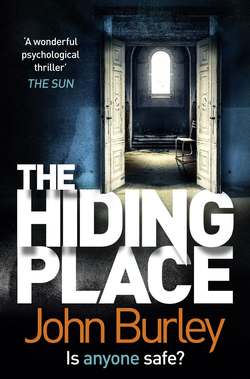Читать книгу THE HIDING PLACE - John Burley - Страница 14
Chapter 7
ОглавлениеThe next morning, the earth was strewn with debris from the windstorm the night before. An audience of trees looked down on severed limbs cast about the ground, their hunched and beaten postures reminding me of a congregation of amputees gathered in the wake of a war.
I usually stop at Allison’s Bakery for a cup of coffee on my way to work. It’s along my walking route and the place always smells like a blend of coffee beans and cinnamon. They offer an assortment of fresh baked muffins and pastries as well, but lately I’ve been sticking to just coffee. I’m thirty-three, and my body hasn’t yet begun the first turn of its downward spiral, but I can feel it wanting to, feel my metabolism beginning to slow, my joints becoming less limber than they once were. I was too thin in college, and the five pounds I’ve put on since then suits me well, but I wouldn’t want it to go any further. The body will take certain liberties if it thinks no one is watching.
“Morning, Lise,” Amber greeted me as I stepped to the counter. She was the proprietor’s niece and had been working there as long as I’d been coming. Her hair, long and straight, reflected the morning sunlight streaming through the shop’s large front window, which I noted had sustained an unsightly crack in the left upper corner since the day before.
I tilted my head toward the window. “Looks like you took on some damage last night.”
Amber nodded. “Something big must’ve hit it.” She turned to pull a cup from the stack behind her and began filling it with my usual. “Glad it didn’t shatter completely.”
“Insurance should cover it, I’d imagine.” I wrapped my palms around the outside of the brown paper cup she placed on the counter in front of me, indulging myself in its warmth. Two men in suits, occupying one of the shop’s few tables, glanced at us over their morning newspapers.
“I guess,” Amber replied. “I haven’t called Allison about it yet. Figure I’ll let her sleep another hour before giving her the bad news.” She produced a small paper cup from behind the counter. “Here, try these,” she said. “We just got them in last week.”
Inside were two chocolate-covered almonds. I tilted the cup to my lips and let one slide into my mouth. “Why do you tempt me with these things?” I asked, shaking my head. Amber smiled and gave me a wink as she watched me down the second one.
I heard a bell chime, and three more people entered through the front door. They looked haggard, caffeine junkies here for their fix.
“Have a good one,” I said, handing the small paper cup back to Amber, who dropped it into the recycling bin behind her. I turned and went to the counter along the far wall, adding skim milk to the coffee and furtively spitting the chocolate almonds into a napkin that I tossed into the garbage. It was a deceitful thing to do, I realize, but there is a ledge one walks between the realms of politeness and self-discipline, and to lean too far in either direction is to risk losing contact with the other. One of the businessmen—young, good-looking, but with an air of being wound a little tight—caught me doing it. He offered me a thin conspiratorial smile, and I returned it before squeezing past the patrons toward the door.
Outside the world was waking up, the people moving along with greater purpose than they had when I’d exited my apartment fifteen minutes before. I could hear the sound of passing traffic along the main thoroughfare a few blocks away, but like myself, many of the local commuters traveled by foot. It was one of the things I loved about this neighborhood—that feel of a close-knit community, something that’s become more elusive as the world continues to grow and the distance between each of us presses outward. There was once a time in America when it was considered normal to know everyone on your block. Now, it’s different. We guard ourselves more closely, suspicious of unsolicited kindness. We’ve grown up, lost our innocence, realizing too late that it was the best part of us and that it’s never coming back.
Two blocks ahead, behind wrought-iron pickets, the hospital’s brick architecture rose up like a mirage against the sky—something ethereal—a place guarded from the outside world, and the world from it. The people living on either side of that fence existed in their own separate realities, aware of one another’s presence only in the vaguest sense, as an abstraction, as if the human lives on the other side of that demarcation were a backdrop, an inconsequential part of the scenery. And where do I fit in? I wondered, moving back and forth between those two worlds, but not truly belonging to either. I brought the coffee to my lips, took a careful sip, wondering—not for the first time—which population posed the greater risk. The muscles in my legs burned as I climbed the steep hill toward the facility, stopping at the gate to rest and look back upon the town below. The two businessmen had left the coffeehouse, and I caught their eye as they stood on the sidewalk preparing themselves for the day. I lifted my hand in a half wave, feeling suddenly that it was my duty to narrow the gap between us all.
They regarded me coolly, and neither returned the gesture.
